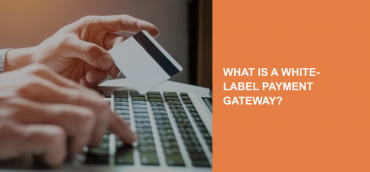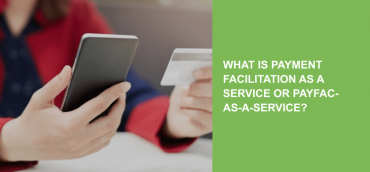What does it take to go ahead and receive credit card payments on your site? What steps does one have to take and what documents to collect to get started with the payment gateway? How can one speed up the process? These are excellent and. honestly, frequently asked, questions. And you should know the answers to them in advance. In our useful guide, you will find them all. So, let’s dive in!
What a payment processor needs to get started with the payment gateway
Any business meeting starts with a handshake and letting the other person know certain things about you and your business while sipping coffee at a conference room. Since most applications for a payment processor take place online, there is no such a “getting-to-know-your-business-better” opportunity for a PSP. Therefore, it is only wise and essential to send all these details in a written form.
What details are we referring to? Here is an exhaustive list of them.
-
Business type.
Sole proprietorship, LLC, general partnership, and limited partnership are just a few examples of a business type we’re referring to. A payment processor needs to know this detail, as the setup depends on it. So, add this to the description of your business when applying for a PSP.
-
Geo preferences.
Each business has a list of countries they are targeting. And since to offer you the best-fitting solution and the lowest rates possible a PSP has to know these countries, don’t forget to specify them in your application form.
-
Jurisdiction of the formation.
It is extremely important for a PSP to know the jurisdiction of the company’s formation for many reasons. First of all, it defines bank choice. Thus, for instance, if the company is registered in the USA, it won’t be a very good idea to process the company’s payments at European banks due to increased fees, and vice versa. Besides, the jurisdiction of the formation defines the payment methods. It is a no-brainer that payment methods popular in Asia are different from those popular in Europe. Local banks offer popular local payment methods. And to get the best payment processing solution you have to provide the PSP with the following details.
-
License (if applicable).
If your business requires a license, you need to provide the PSP with its number. But only if it’s applicable.
-
Turnover.
Specify the range of your money turnover to the PSP. This way the processor will know what banks to apply for on your behalf.
-
The smallest and biggest ticket amount.
Certain banks have restrictions when it comes to the smallest and the biggest check sizes. That is why, not to apply for an unsuitable bank for your particular case, the PSP has to know these details up front. Besides, since businesses with large tickets are considered to be high-risk. And not all banks work with them after all.
-
Processing history.
Every business has a processing history (unless you are a brand-new startup). And merchants should be ready to provide it when asked. If you are a startup owner with no prior processing history, don’t worry: though not all PSPs agree to process your funds, there are many of those who do.
-
Company website.
Not any website will do. When a merchant applies for our services, we brush up his website to make sure that it complies with Visa and MasterCard requirements. For instance, we make sure that the website has the Terms & Conditions page. It is an agreement that explains to the customer what goods or services he can purchase here and at what prices, what merchant’s refund policy looks like, etc.
Moreover, any payment processor knows that it is essential for a merchant to have a Privacy Policy and Contact Us pages. The latter must contain the legal person and address, email, and a contact phone number. In case the business has a subscription payment model, the merchant has to add a section on his website with a detailed explanation of the subscription cancellation policy.
Merchants selling physical goods are to explain delivery terms and conditions and types of delivery available.
Finally, some businesses must add age verification to their websites (for instance, adult content, gambling, Forex or other financial services). Any payment processor will ask the merchant to prove it’s added to the website since the setup process isn’t possible without this feature. -
Desired payment methods.
Sure thing you can ask a PSP for a list of methods they support. But why do that if you already have a list of preferred payment methods?
Once you answer all these questions, consider collecting all the necessary documents to your application. Here are basic documents that you should bear in mind.
Documents required to start receiving credit card payments on site
Disclaimer: The set of documents required is unique for each business. However, we will focus on the required minimum common for any type of business and offer you a list of certain additional documents that might come in handy when setting up your account with a PSP.
- Documentation of the off-shore company (if you have one). Including a certificate of incorporation, share certification and Company extracts (will include: nomination of a director, owner details and registered address of the company);
- Documentation of the European company. Including a certificate of incorporation, share certification and Company extracts (will include: nomination of a director, owner details and registered address of the company).
- Power of attorney / Declaration of trust. If you have a POA (power of attorney) to act on behalf of the director of the European and/or off Shore Company, please provide a copy.
- Official settlement bank account where you want the money to arrive to the beneficiary. The paper needs to show the bank’s name and logo, full address of the bank, and the IBAN numbers (IBAN number per currency you want to process in). Please make sure you provide us with bank accounts for both SEPA and international payments in case they are different in your bank.
- Scanned passports of the directors, both off-shore and European, and the beneficiary (UBO-owner of the off-shore company).
- Proof of address of the directors, both off-shore and European, and the beneficiary (UBO-owner of the off-shore company) It can be an electric/water bill or a bank statement. It must be not older than 3 months. Also, if it’s not in English, it must be translated and signed by the certified translator.
- Processing history. Applicable only if you have another clearing company currently or in the past, please send us your processing history of the last 3 months, including the number of transactions, chargebacks, and refunds.
- Proof of domain ownership.
- Proof of address of the company. Since Visa and MasterCard no longer accept companies with virtual offices, they expect merchants to send them copies of rental agreements proving they really are renting an office at a claimed address.
Remember that you need to collect a set of documents for each company, parent or subsidiary.
Important comment
- If a merchant resells goods, he has to provide the payment processor with agreements for supply signed by the producers.
- If a merchant sells goods protected by intellectual law, he has to prove his right to use and resell these goods. Thus, in the case of music, books, TV streaming, etc, the merchant must provide with the copyright agreement.
- In case the merchant produces his own goods, he has to prove that he is the one producing it (e.g. license permitting the production or the raw material supply invoices).
Here, at Ikajo International we offer support along the way absolutely free of charge. We will help you at all stages making sure that the documents required are in place, website is brushed up, and preferences are taken into account when searching for the best-fitting payment processing solution. Therefore, feel free to seek our assistance. We’re here to help!





